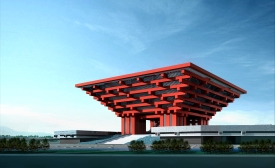nation branding
For a city, there’s nothing quite like the glory of winning an Olympic bid. The highly competitive process starts nine years before the games and involves untold amounts of campaigning and planning. Once selected, fortunate cities have seven years to prepare, updating their infrastructure and building new, impressive facilities. If they pull it off, they get two weeks to show it all off to the entire world.
On a warm summer morning earlier this month, dozens of building workers were putting the finishing touches to the restoration of Casa Moreyra, a 17th-century colonial manor house in San Isidro, the business district of Lima, Peru’s capital. With an investment of $6m, Casa Moreyra is the new home of Astrid y Gastón, a restaurant ranked 14th in the world by Restaurant magazine.

CPD Director Jay Wang’s new book, Shaping China’s Global Imagination: Branding Nations at the World Expo (Palgrave Macmillan), explores the phenomenon of nation branding by looking atthe 2010 World Expo in Shanghai.
Now, the guardians of Japan’s economic future are banking on much the same thing. They hope that the beloved, magical cat can reach into his bag of tricks and pull out a ticket to the global spotlight, both for himself and for the nation that created him. Although appointed Japan’s “anime ambassador” in 2008, Doraemon didn’t speak English until a few months ago.
Life-long Kazakhstan President Nursultan Nazarbayev has suggested changing his country's name to to "Kazak Yeli" to make it friendlier to investors and tourists. “The name of our country has the ending ‘stan,’ as do the other states of Central Asia,” he said Thursday. “At the same time, foreigners show interest in Mongolia, whose population is just 2 million people, and its name lacks the suffix ‘stan.’ Perhaps with time the question of changing the name of our country to Kazak Yeli should be examined, but first this should definitely be discussed with the people.”
Life-long Kazakhstan President Nursultan Nazarbayev has suggested changing his country's name to to "Kazak Yeli" to make it friendlier to investors and tourists. “The name of our country has the ending ‘stan,’ as do the other states of Central Asia,” he said Thursday. “At the same time, foreigners show interest in Mongolia, whose population is just 2 million people, and its name lacks the suffix ‘stan.’ Perhaps with time the question of changing the name of our country to Kazak Yeli should be examined, but first this should definitely be discussed with the people.”
Each year the second year students in the USC Master of Public Diplomacy program select a location abroad to conduct new research that can further the study and practice of public diplomacy. This year, the Class of 2014 selected Sao Paulo, Brazil for its unique position in world politics. Brazil is currently transitioning from a regional and hemispheric power to a global one.
Anyone who has watched an Olympics whose vision is sharp will notice that the logo for Sochi 2014—which appears in every stadium, on every ticket, and on tens of millions of dollars’ worth of Olympic merchandise—is remarkably different from those of previous Olympics. It contains no drawing and features only unassuming lowercase lettering, the five Olympic rings, and a Web address.







